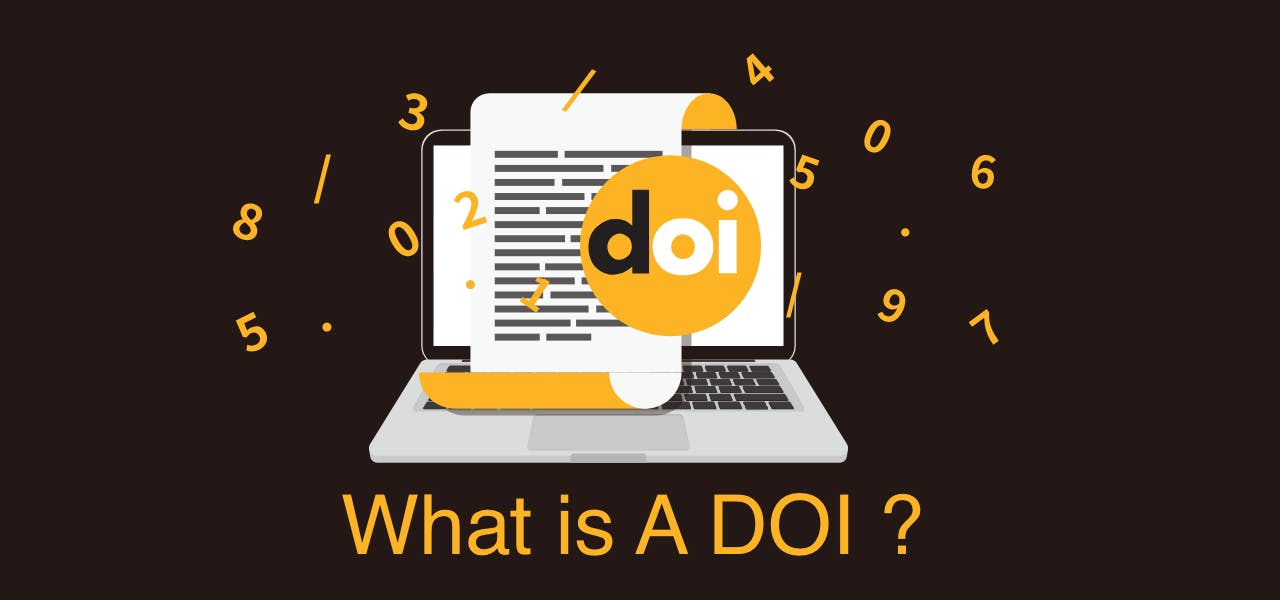It often seems like everything since the advent of the Digital Era has changed, no matter what industry you are in. The academic landscape has also felt the impact of the gradual evolution into digitalization, everywhere from classroom settings to publishing requirements. The process of getting an academic manuscript published is almost completely different than it was just ten years ago.
In fact, the shifting expectations of publishing in the Digital Era come hand-in-hand with learning new terminologies, too, like the DOI. If you are trying to get your manuscript published or have used other research for referencing, you have seen these letters, even if you don’t know what they mean. A DOI, or digital object identifier, isn’t necessary for every online publication, but it is for a lot of them, and you should understand why it’s important for your journal article.
What is a DOI?
DOI, one of the newest acronyms in academic publishing, refers to a Digital Object Identifier. This term and the concept behind it was developed in order to add a unique tag to electronic items on digital platforms. Like a USBN number on a book, these identifiers follow the digital item no matter where it goes. They are commonly seen in electronic data in the form of:
● Multimedia
● Online books
● Research reports
● Academic journals
● Government reports
● Conference presentation writings
● Codes
● Data sets
Since not everything requires a DOI, it must go through a process in order for a number to be created. This process is managed by the International DOI Foundation, under which certain registration agencies handle servicing people to get their digital items registered and given a DOI number.
DOIs always start with the number 10 and a period, but everything after that is formatted based on the digital object’s category itself.
There are a couple of important things to know about DOIs.
What Kind of Articles Need a DOI?
However, just because you wrote an article doesn’t mean you automatically need to apply for a DOI. There are certain guidelines that govern this requirement, and a DOI isn’t always the best choice for your work in some instances.
DOIs have no bearing on a peer-review status, and both peer-reviewed and non-peer-reviewed articles are eligible for a DOI.
In general, a DOI is used for articles when the author wants to make their research easily citable. These never change, so even if the journal that published your work moves it, there are no broken backlinks and anyone can get back to your paper. These also are a great way to put a date on your research so no one else can use it and claim it as theirs.
Almost anything unpublished can receive a DOI. Articles, books, patents, conference papers, posters, chapters, and cover pages are not eligible for DOIs because they typically are published in other places, too.
The Important Things You Need to Know to Use DOIs in Your Work
Whether you’re applying for a DOI for your own work or using someone else’s as a reference, you should know these important attributes that go along with citing an article that has an identifier attached to it:
● The DOI is printed with the article on the first page, in the header, or in the footer, for recent publications
● You can use CrossRef.org to search for a DOI if you can’t find it
● Any DOI that begins with http or https can be pasted into a web browser to take you to the article
● Articles before 2011 began with 10, but adding http://doi.org/ to the number will bring you to the journal
Since one of the major problems with research citations is broken backlinks, using a DOI in your referencing and to have others reference your work keeps this from happening. Your citations will always be accurate and kept in your long-term storage for future access, no matter what the publisher does with your link.
